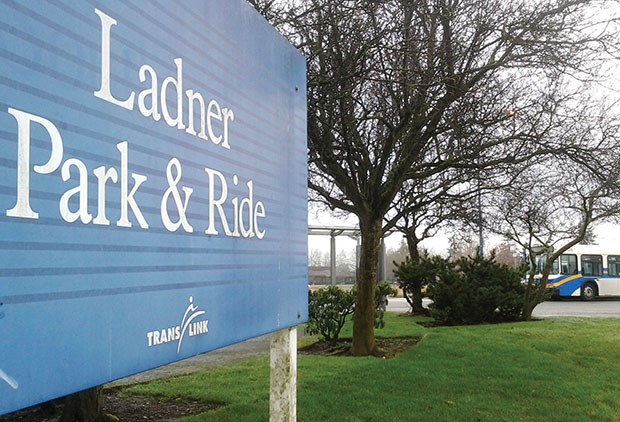South Delta might see a new rapid bus station and an expanded South Delta Exchange park and ride, but there's no guarantee they'll come to fruition even if a proposed tax hike is approved by the region's voters.
That was the warning by Mayor Lois Jackson at last week's Delta council meeting, where the proposed 0.5 per cent "Metro Vancouver Congestion Improvement Tax" was discussed.
Civic politicians had already agreed that Delta not take a formal position on the proposed tax, which will be put to voters in a mail-in referendum this spring. Instead, Delta staff outlined how information on the proposed tax and the series of potential regional transit improvements that could come about if it's approved will be sent to Delta residents for feedback.
A letter, which will include information on Delta's own transportation initiatives, will be mailed with the 2015 utility rate notices. A report on the feedback will come to council at the end of March.
A series of transit improvements under a vision released by the Mayors' Council on Regional Transportation identified a few possible improvements for Delta. For South Delta, they include a rapid bus station at highways 99 and 17A, relocating and expanding the South Delta Exchange park and ride, increasing peak bus service on some routes and expanding HandyDart.
Those improvements pale in comparison to the big-ticket items in the plan, which include light rapid transit along King George Boulevard in Surrey and rapid transit along the Broadway corridor in Vancouver.
Local politicians agreed to ask the mayors' council to send a representative to appear at the Feb. 16 Delta council meeting to clarify the situation.
According to the mayors' council, which has launched a campaign to support the tax, one million more people will be coming to the region over the next 25 years, so transportation and transit improvements are needed to reduce congestion.
The proposed 0.5 per cent hike to the sales tax is expected to generate $250 million annually, money that would be earmarked for transit improvements identified in a 10-year, $7.5-billion plan put together by the region's mayors. Senior government funding would also be required.
The tax is expected to cost $125 per year for the average household.
Mail-in ballots will go out beginning March 16. Eligible voters will have until May 29 to return them.
* The Delta chapter of the Council of Canadians, which supports the proposed tax, is holding a presentation and discussion at the Ladner Pioneer Library on Thursday, Feb. 26 from 7 to 9 p.m. Transportation planner and author Eric Doherty will speak.



